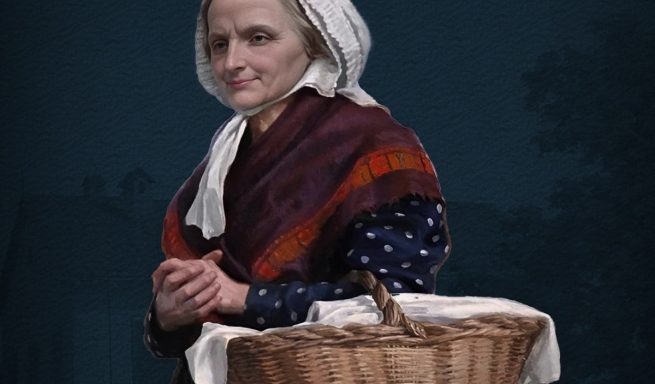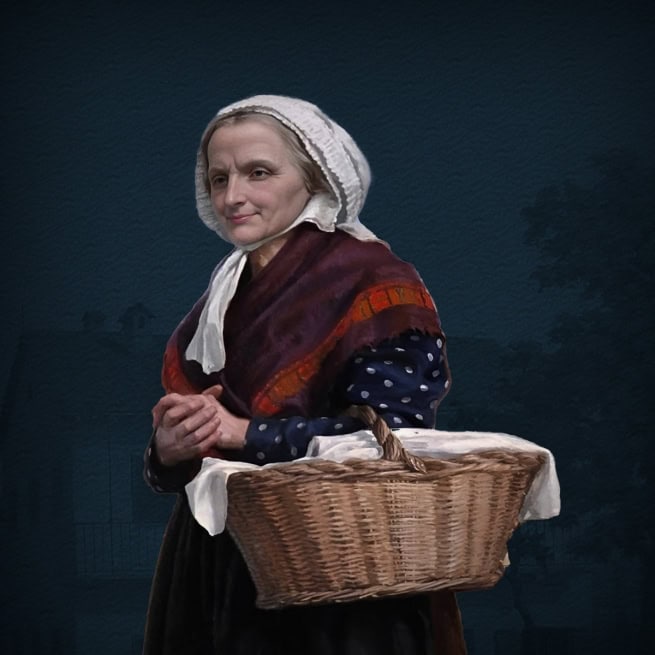(ANS – Rome) – Behind every great saint stands a mentor, and behind Don Bosco stood a woman whose quiet strength, unwavering faith, and maternal genius sculpted not just a son, but an entire movement that would transform millions of lives. Mamma Margaret—Margherita Occhiena—was far more than Don Bosco’s mother. She was his first teacher, spiritual guide, co-architect of his educational vision, and the living embodiment of the Preventive System that became the hallmark of Salesian education worldwide.
From Widow to Warrior of Faith
Born in 1788 in Capriglio, Italy, Margaret’s life was marked by loss and resilience. Widowed young with three sons and an ailing mother-in-law to care for, she faced crossroads that define character. She could have remarried for security but chose the harder path—raising her children through her own hands, faith, and sacrifice. Every day became a sermon without words: hard work sanctified by prayer, poverty transformed by dignity, and love expressed through tireless service. This daily witness of heroic endurance planted seeds in young John Bosco that would blossom into a worldwide mission for abandoned youth.
The Dream Interpreter and Vocation Architect
When nine-year-old John recounted his famous childhood dream—wild boys transformed into gentle lambs—it was Margaret who gave it meaning. “You will understand it in time,” she told him, recognizing a divine calling she would spend years nurturing. When family tensions threatened John’s seminary education, Margaret made the excruciating decision to send him away, choosing his vocation over her comfort. She sold what little she had and trusted God’s plan with mountain-moving faith. Margaret raised her children with moral rectitude rooted in devotion to Mary and the Eucharist, values that became the spiritual DNA of Don Bosco’s life and work. She taught him that holiness was not abstract theology but concrete love—prayer lived through action, faith demonstrated through sacrifice, grace made tangible through service.
The First Salesian: Co-Founder in Apron and Prayer
In 1846, when Don Bosco fell gravely ill from overwork, Margaret made a history-changing decision. At age 58, she left her quiet countryside home for Turin’s chaotic streets to join her son’s mission at Valdocco. She found hundreds of poor, abandoned, often delinquent boys desperately needing not just shelter, but a home. Margaret didn’t hesitate. She became cook, nurse, seamstress, gardener, and spiritual mother to every boy. She sold her wedding ring and dress to buy food, mended torn clothes, tended scraped knees, and listened to confessions of the heart no priest could hear. She taught cleanliness as dignity, modesty as self-respect, work as prayer. Most profoundly, she transformed the oratory from institution into family.
Margaret introduced daily routines that became sacred traditions: morning and evening prayers, the Rosary, the Angelus, and most famously, the “Goodnight” talk—brief evening reflections ending each day with gratitude, encouragement, and gentle moral guidance. This simple practice, born from maternal instinct, became a cornerstone of Salesian community life worldwide and continues in thousands of Salesian houses today.
The Living Blueprint of the Preventive System
What Don Bosco later formalized as the Preventive System—education based on reason, religion, and loving-kindness—he first learned at his mother’s knee and witnessed in her daily actions at Valdocco. Margaret’s discipline was never punitive but preventive. She kept a silent rod in the corner as symbolic authority, but her real power was loving presence and vigilant supervision. She prevented misbehavior not through fear but relationship, not through punishment but trust.
When boys misbehaved, she responded with calm firmness: holding a struggling child gently but securely, saying, “It’s no use. I won’t let you go”—patient endurance with clear boundaries. She corrected through dialogue, taught through proverbs, guided through everyday wisdom. Consequences were fair and predictable, helping children connect actions with responsibility without crushing spirits. This maternal model profoundly shaped Don Bosco’s pastoral style. He learned that true discipline forms character, not controls behavior; that education succeeds when students know they are loved; that the goal is virtue born of conviction, not obedience born of fear. The Salesian atmosphere—marked by joy, family spirit, and loving guidance—owes its character directly to Mamma Margaret’s example.
The Mother who made a Saint
Don Bosco often said, “I owe everything to my mother.” Margaret’s influence transcended practical routines or educational methods. She formed his heart. Her faith in providence taught him to trust God in impossible situations. Her sacrifice taught him that true love costs everything. Her gentle strength taught him that holiness is the highest courage. Her constant presence taught him that pastoral care means being there—consistently, patiently, lovingly—until transformation happens.
When Margaret died in 1856 at age 68, Don Bosco lost not just his mother but his collaborator, counselor, and the soul of his mission. Yet her legacy lived on in every boy she mothered, every tradition she started, every value she instilled. The Salesian Family she helped birth now spans 136 countries, educating millions with the same reason, religion, and loving-kindness she practiced in a humble oratory kitchen.
A Saint in the Making
In 2006, the Church declared Mamma Margaret “Venerable,” recognizing her heroic virtues. Her beatification cause continues, inspiring devotion across the Salesian world. She stands as a model of Christian motherhood—proving that maternal love is a powerful force for sanctity, and that sometimes the greatest saints are formed not in seminaries but at a mother’s side.
Mamma Margaret’s life testifies to a profound truth: saints are not born but formed, and forming a saint requires another saint. Through faith, sacrifice, wisdom, and love, Margaret Occhiena not only raised Don Bosco—she fine-tuned his mission, shaped his spirituality, and co-founded a movement transforming lives today. Her story reminds us that behind every great work of God stands someone who believed, sacrificed, and loved enough to make it possible.
As Don Bosco wrote: “What I am, I owe to my mother.” And what millions have become through Salesian education, they owe ultimately to the quiet, heroic love of a widow from Capriglio who chose faith over comfort—becoming the mother not just of a saint, but of a worldwide family of hope.
Source: ANS – “Agenzia iNfo Salesiana”


